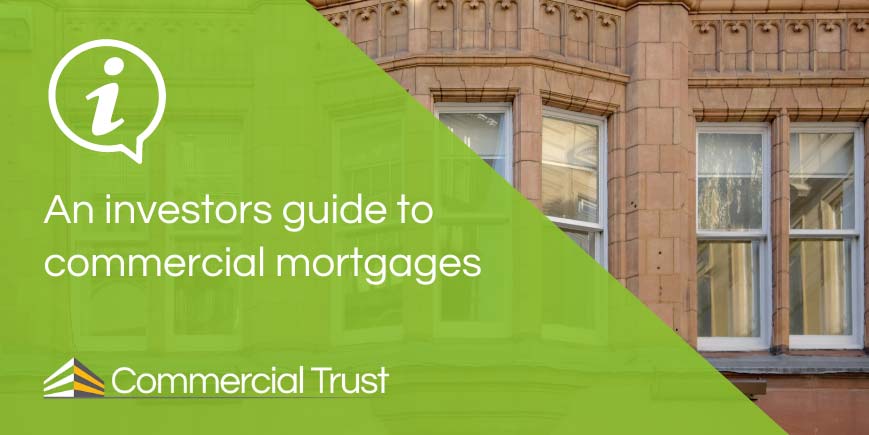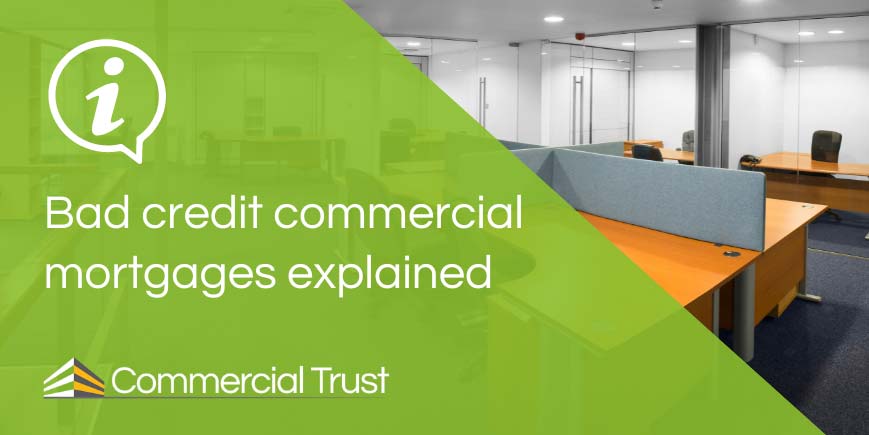This information should not be interpreted as financial, tax or legal advice. Mortgage and loan rates are subject to change.

Categories: commercial mortgages | guides | commercial mortgage guides
Are you looking for the perfect home to start a family? Is your business growing and needs a new commercial premises? Are you an investor looking to add a property to your portfolio?
No matter what your reason is for purchasing a property, you likely need to secure a funding solution. A mortgage is a type of loan tailored for property purchases. When looking to buy a property, there are different mortgage options depending on the property type.
A residential mortgage is for purchasing a property that you will live in. A commercial mortgage is for purchasing a property for business activities. Both mortgages relate to properties, but differ in many significant ways.
In this guide, we highlight the difference between commercial and residential mortgages.
Eligibility
Mortgage eligibility criteria are a set of conditions each lender sets that the borrower must meet to qualify for a loan.
These criteria define what sort of risk the lender is prepared to take on, when lending against property (different types of property and borrower present differing risks to the lender) and help the lender ensure that the borrower can repay the loan without facing financial difficulty.
For residential mortgages, the emphasis is on the borrower's financial standing. The lender will check your income to determine if you can repay the mortgage. They may also review your credit score to see if you have struggled with repaying debt in the past and your employment income against your spending to determine if you can afford your monthly payments.
For commercial mortgages, the focus shifts towards the rental income the property will make, if you are letting it out, or your business income, if you are running your own company from the property. Lenders may also check your personal finances and experience level, especially where you are applying for a commercial mortgage to buy a building you will run your own company from.
Property types and usage
Residential mortgages are for properties that people will live in. These include houses or flats. The property types and usage are straightforward, allowing lenders to offer “pre-set” or standard residential mortgages.
Commercial mortgages are for buildings that businesses operate from. These include offices, warehouses, shops, restaurants, hotels, leisure centres, and garages – but for a more comprehensive list of which commercial types are eligible for a commercial mortgage, read our guide here.
You can also use this type of mortgage to buy land for commercial use.
Mixed-use properties include both a place to live and to conduct business. For example, a pub with living accommodation. For this type of property, you could apply for a semi-commercial mortgage.
The different types and usages of commercial properties add complexity to commercial mortgages. This means that these mortgage packages cannot be pre-set in the same way that residential mortgages can be.
As a result, when applying for a commercial mortgage, a business case has to be drawn up and presented to a commercial lender, who will then respond with a tailored mortgage offer and rate.
Interest rates and terms
Mortgage interest rates are based on risk. In general, residential mortgage interest rates are lower, due to their lower perceived risk by lenders. The risk is lower in part because a residential borrower is strongly motivated to keep up with mortgage payments as a result of the need to keep a roof over their heads (and if applicable, the heads of their family).
Whereas, a commercial mortgage borrower is paying to protect their asset, or keep their business going which, whilst it can indirectly affect their living situation, does not directly affect it and so the risk of not making payments is higher.
Due to the higher risk, commercial mortgage rates tend to be higher than residential mortgage rates. The mortgage payments being met depend on the success of the business, or business tenants in the commercial property. This increases the risk of missed payments for the lender.
You can use a commercial mortgage calculator to see the potential interest rates. This provides estimated monthly payments for your commercial mortgage.
Borrowing limits
Borrowing limits refer to the highest amount of money that a lender is willing to extend to a borrower for a mortgage. These limits are determined based on various factors, such as the lender’s criteria or the borrower's income. The borrowing limits are to reduce the lender’s risk when lending the capital.
The highest borrowing limit for a residential mortgage typically a lot higher than a commercial mortgage. This higher borrowing limit is based on the lower risk with this type of mortgage.
The borrowing limit for a commercial mortgage is generally a 75 percent loan to value (LTV) ratio. For an owner-occupied commercial mortgage, the highest LTV ratio is 80 percent. This means you will need to provide a deposit of at least 20 to 25 percent. In some cases, you may need to provide up to a 40 percent deposit.
Repayment terms and periods
Residential mortgages usually have a loan period of up to 40 years. This mortgage usually has monthly repayments which cover both the interest and the principal amount of the loan (known as capital repayments).
Commercial mortgages can have a loan period that can vary between 3 to 25 years. Some are capped at 15 years. The loan period will depend on the lender and the property itself, such as its type, location, and value.
You can repay a commercial mortgage in capital repayments or you can have an interest-only commercial mortgage. This means that you only pay off the interest monthly, but at the end of the term, you will not own the commercial property outright.
Regulatory framework and legal aspects
The Financial Conduct Authority (FCA) manages and regulates residential mortgages in the UK. The FCA’s regulations ensure that lending practices are transparent and fair. These regulations aim to protect borrowers from exploitation and financial challenges, given a borrower should not be expected to have a detailed knowledge of mortgages and how they work.
Commercial mortgages are not regulated by the FCA. This allows for increased flexibility for lenders when setting the terms and conditions. This also means that borrowers are not protected by FCA regulations, because they are expected to understand how mortgages work and use that knowledge to ensure that by borrowing they will not face financial challenges.
Commercial borrowers must understand all terms and conditions before agreeing to the mortgage. You can seek legal counsel to ensure that the mortgage terms match your best interests.
Want to learn more about a commercial mortgage? Speak to our specialist advisors
Commercial Trust is a specialist commercial mortgage broker in the UK. We have access to a wide range of UK lenders, allowing us to find the ideal commercial mortgage for your needs.
Our specialist advisors are experienced with commercial lending and are up to date with the latest market trends and lending criteria. We will ensure that you receive tailored advice that matches your needs and ensures you receive the best commercial mortgage deal.
Get in touch with an expert advisor to learn more about a commercial mortgage.





